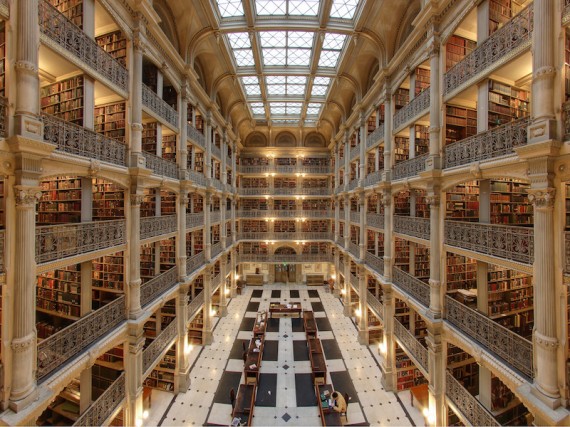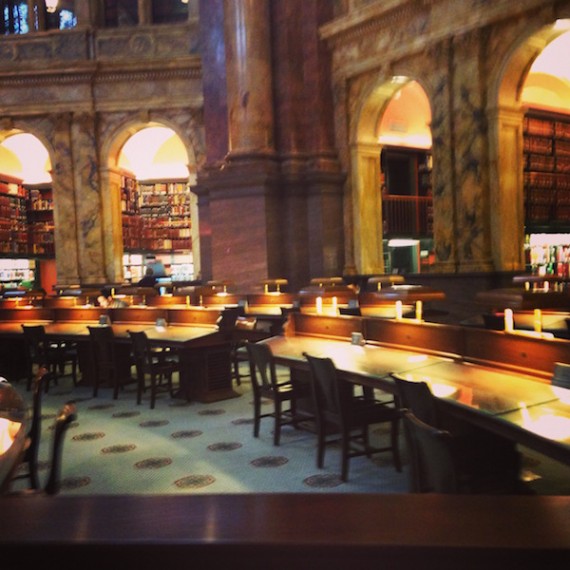Week 3 Prompt: Libraries
Libraries aren’t just places to store books or sit and think. They link a community to important resources, serving as a hub for information about taxes, voting, and other issues of local concern. Libraries can be big or small, publicly-funded or privately-endowed, grand or humble, focused on research or designed to attract a wide audience. There may be a children’s section, but there may also be other special collections: maps, large-print, computer terminals, or rare and valuable books, to name just a few. This week, take a photograph of your local libraryand tell us about it: Why do people go there? Are there books and computers? Is it usually busy? How is it used — for research, reading, or as a common gathering place? Do people take pride in their local library, or is it largely hidden from view?
Kevin Costello ’16, Philosophy & Political Science
I suppose it would be wrong to do a “libraries” post in DC on something other than the famous Library of Congress. To provide a quick history lesson, the original library, at least in DC location, was established in 1800, tucked away inside the Capitol building. After the British burned the Capitol down during the War of 1812, however, all was lost, and the library needed to start anew. Thomas Jefferson, an avid book collector whose expensive tastes were plunging him into crushing debt, offered to sell his personal library of nearly 6,500 books to the government for the purposes of establishing a new Library of Congress.
Today, the LoC houses over 150,000,000 books, periodicals, and other items and serves the unique role of being both a tourist attraction and a fully functioning public library. The aesthetic of the library’s primary building, the Thomas Jefferson building, combines classical republican architecture, renaissance flair, and other recognizable aspects of Western culture. The building was designed as such in order to make European scholars and intellectuals notice a young America’s cultural and artistic depth. The Main Reading Room, which is perhaps the library’s most recognizable space, is a great example of such design, as the circular room is lined with heroic statues of some of the West’s most valuable contributors, such as Michelangelo, Newton, and Plato. A fun, albeit strange, fact about the Main Reading Room is that all photography is expressly prohibited. Fortunately, though, my dedication to TBS-Abroad knows of no such limitations, and as such, I’m happy to contribute my own illicit photograph of the Library of Congress’s Main Reading Room. If I mysteriously disappear at some point in the coming weeks, at least Colgate will know what’s happened.
Katrina Bennett ’16 Neuroscience
The main library here that I go to is Chancellor Oppenheimer Library at the University of Cape Town. The library is located at the center of the campus and is very similar to the library at Colgate. Interestingly, to get into the library there are gates where students must swipe their student cards to enter and where monitors sit to ensure that absolutely no food or drinks are brought in. Inside, the library is extremely clean and bright, with many windows! There are areas with many computers, big open tables, and many closed cubicles. In addition to sitting spaces, there are many, many books at this library and also many knowledgeable librarians. Everyone in the library is extremely respectful of everyone else and is always very quiet and working very hard. In addition, monitors walk around the library ensuring that no one has food or drink, which probably largely contributes to the fact that everyone follows the rules so closely. The library is so beautiful, modern and bright and definitely one of my favorite places to do work here in Cape Town.



